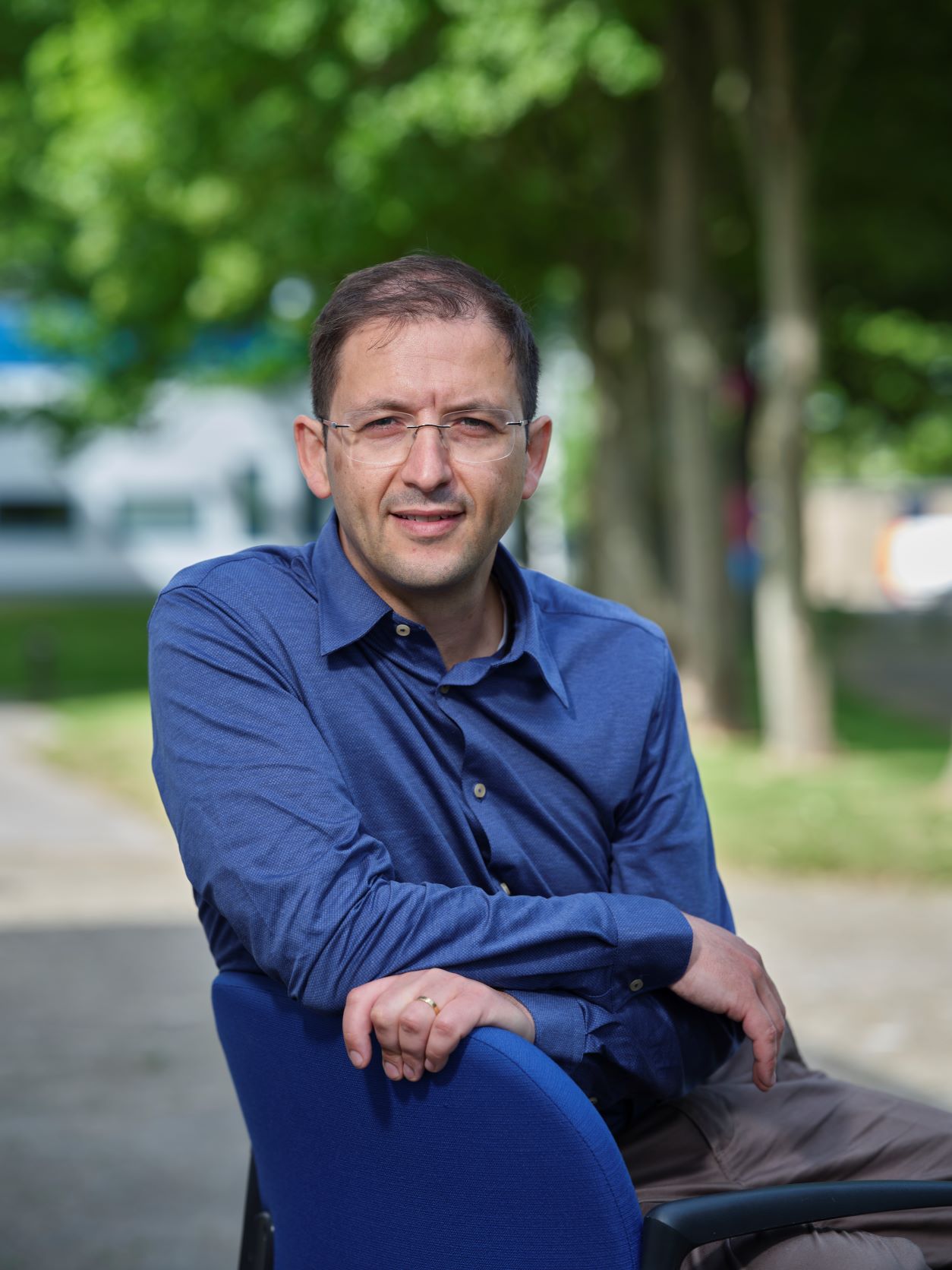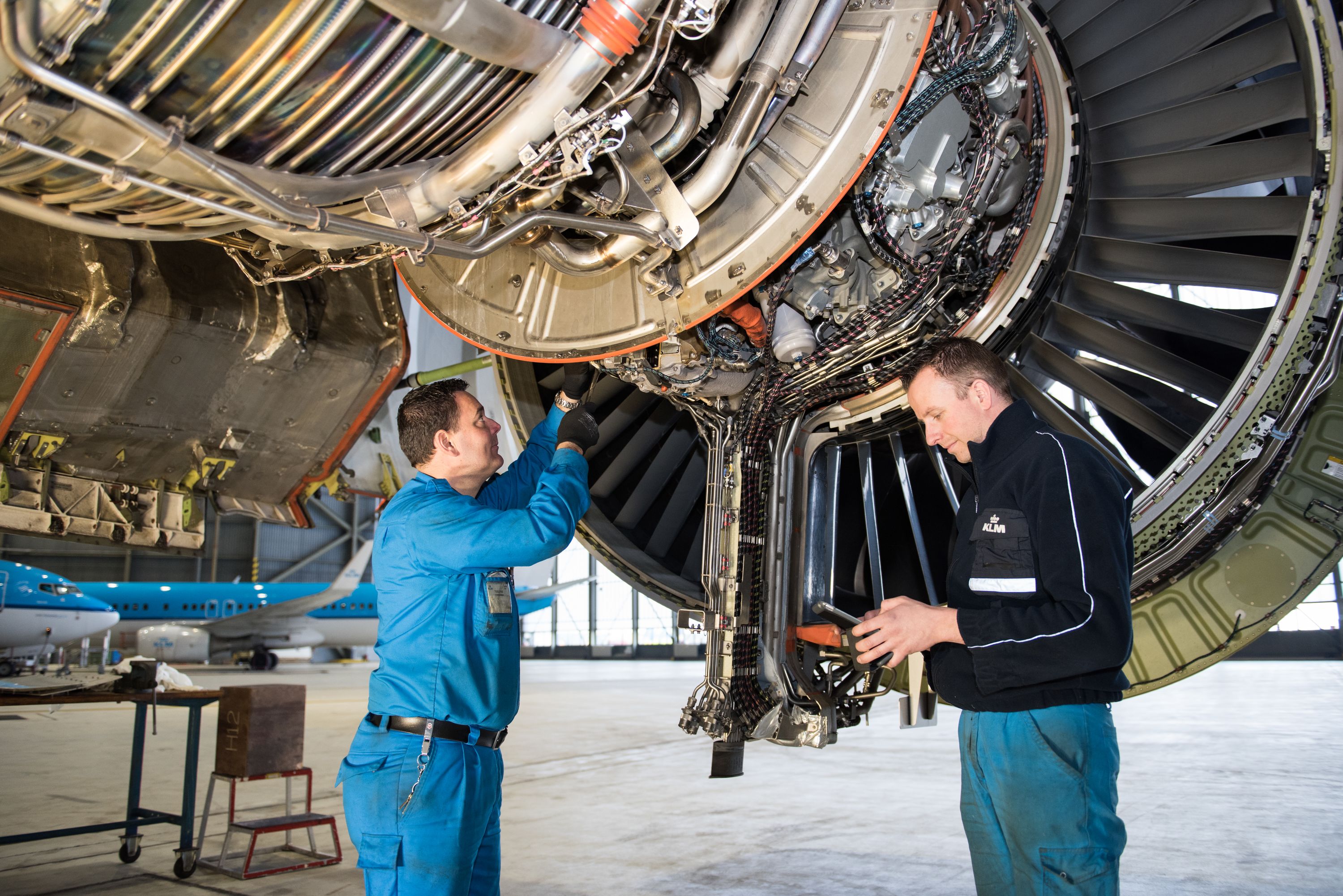More efficient aircraft maintenance through AI
Maintaining aircraft fleets smarter and more efficiently using AI? With a major study of several European universities and industries (ReMAP) with TU Delft as project leader, a step has been taken in the modernization of aircraft maintenance using Artificial Intelligence.
During a six-month test period at KLM, using KLM's real-time operational data, it was proven that AI models can be used to make health predictions of aircraft systems, and plan the maintenance process accordingly. Project leader Bruno Santos (TU Delft): “We have succeeded in modelling the complete maintenance process of various aircraft fleets. In the future, this will make it possible to transform current aircraft maintenance based on fixed time intervals (and maintenance due to defects) to continuous health monitoring of systems. Systems are then replaced exactly when necessary, which prevents waste. In addition, the team has modelled the highly complex maintenance planning process that is currently largely done by hand. This takes into account changes and disturbances, which is a better approximation in practice compared to existing static models. This allows maintenance to be planned further in advance.”
Predictive maintenance
In Europe alone, the potential savings on aircraft maintenance can amount to 700 million euros per year as estimated by ReMAP. Paul Chün, Vice President Technology Hub KLM Engineering & Maintenance, says: “With this adaptive health monitoring and maintenance scheduling concept, we can consider replacing the manual scheduling approach, typically limited to the next couple of days, by an automatic scheduling process that can consider several months in advance. The benefit for travellers is clear: less unscheduled maintenance results in less delay and cancelation of flights.”
Bruno Santos: “We have made strong contributions to this with our ReMAP integrated approach. Furthermore, we developed an open IT platform that will allow AI developers to have their prognostics or scheduling algorithms run on life operational data, with the use of a few clicks. This will foster the development of innovative third-party solutions, and will help transforming the current conservative fixed-time interval maintenance approach into a truly adaptive condition-based maintenance approach in a restricted and regulated domain such as aviation.”
Structural Health Management
Another scope of research of ReMAP has been the diagnostic and prognostic capabilities for composite aircraft structures. Current manual inspections of composite aircraft structures take a lot of time, because damage is often not visible on the surface. Diagnostic- and Prognostic Systems have been developed to determine whether there is damage, where the damage is, what damage it is and how severe the damage is, using artificial intelligence. An intensive two-year test campaign on aerospace composite materials at the Faculty of Aerospace Engineering of TU Delft and at the University of Patras (GR) has resulted in a unique public knowledge base for monitoring the health of these materials.
Roadmap for the aviation industry
ReMAP (Real-time Condition-based Maintenance for Adaptive Aircraft Maintenance Planning) is a Horizon 2020 project that started in June 2018 and stops in May 2022. The results will be presented at a workshop at TU Delft on 23 May 2022. This workshop is open to the public and free of charge for all stakeholders.
The Advisory Council for Aviation Research and Innovation in Europe (ACARE) states that as early as 2035, CBM will be accepted as the standard approach for monitoring aircraft health and planning aircraft maintenance. It expects all new aircraft to be designed for CBM by 2050. This year ReMAP will propose a roadmap to the European Commission for the future development of CBM solutions in practice, based on the results of this project and the discussions in Delft on the 23rd of May 2022.
ReMAP Partners include: Delft University of Technology (NL), ATOS Spain S.A. (SP), Cedrat Technologies (FR), Collins Aerospace (IE), École National Supérieure d’Arts et Métiers (FR), Embraer Portugal S.A. (PT), Instituto Pedro Nunes (PT), KLM Royal Dutch Airlines (NL), Office National D’Etudes et de Recherches Aerospatiales - ONERA (FR), Optimal Solutions (PT), Smartec SA (CH), University of Coimbra (PT), University of Patras (GR).
More information
- ReMAP-website: h2020-remap.eu
- On May 23rd at the Faculty of Aerospace of the TU Delft, the ReMAP partners will present and discuss the results of the project in a public workshop with stakeholders: cbmacademy.eu/remap-day
- The conclusions and recommendations will be presented during the '1st International Conference on CBM in Aerospace' on 24th and 25th May 2022 at TU Delft with the support of all ReMAP partners: cbmacademy.eu
- In the field of aircraft structures, follow-up research is being conducted by the 'Centre of Excellence in AI for Structures', established by TU Delft in 2021: tudelft.nl/2021/lr/nieuw-center-of-excellence-in -ai-for-structures
Contact
Press officer ReMAP Christine Windmeijer, Christine@PR4Innovation.nl or 0653525256
Pres officer Digital Society Pauline Bijster, H.P.Bijster@tudelft.nl or 0648421089
Associate Professor Bruno Santos, B.F.Santos@tudelft.nl


